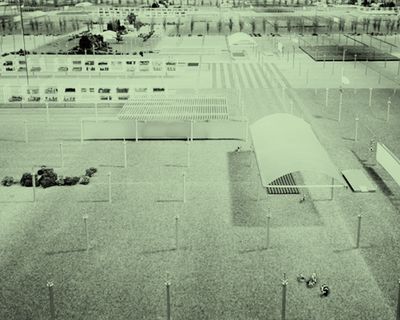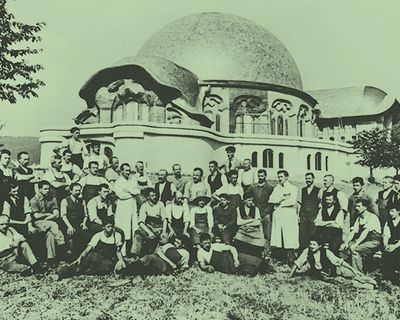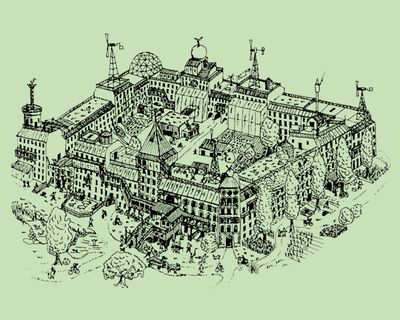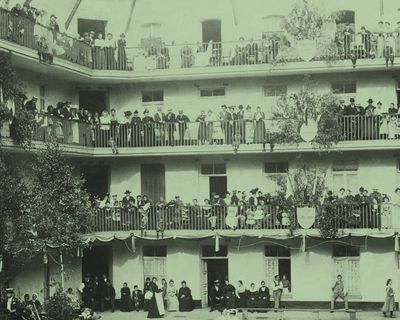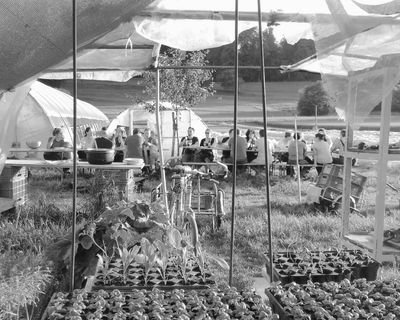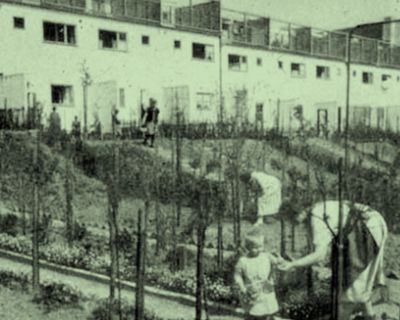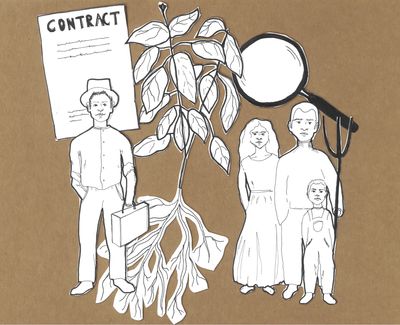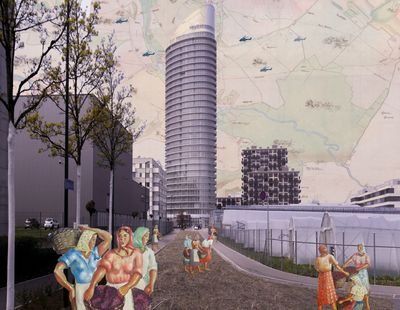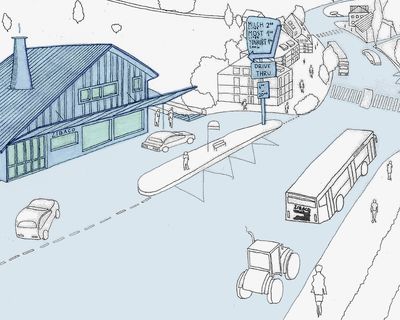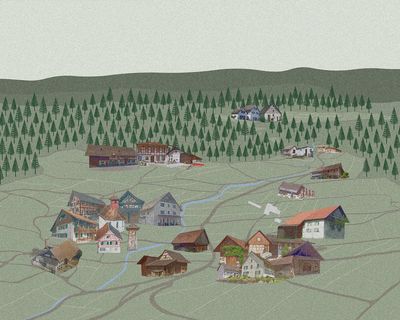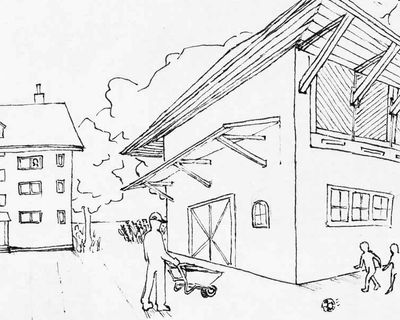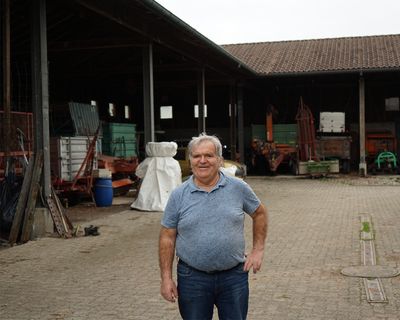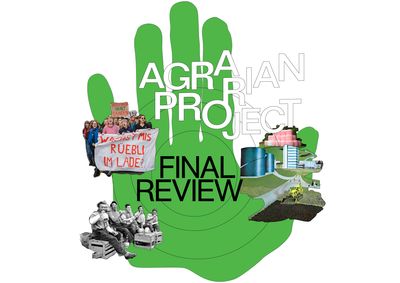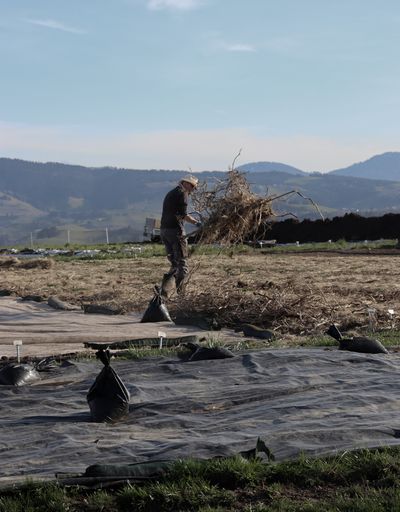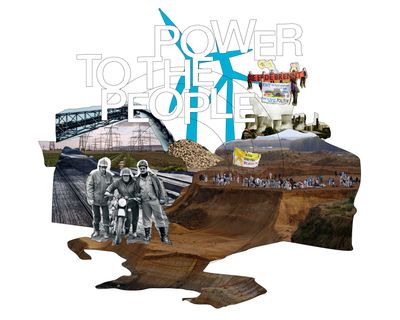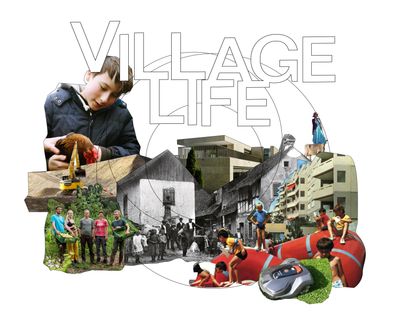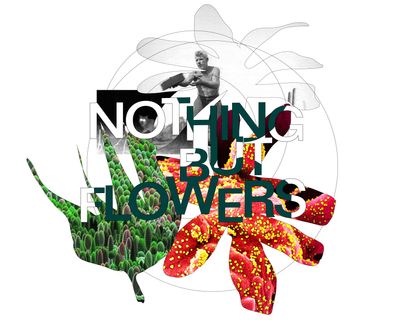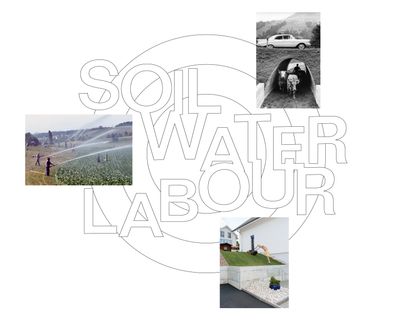Agrarian Project
Commoning Land and Labour Around Zurich
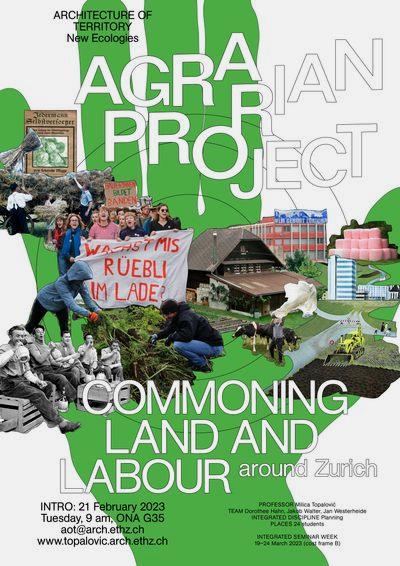
The law locks up the man or woman
Who steals the goose from off the common
And geese will still a common lack
Till they go and steal it back.
Unknown author, 17th century
Agricultural land is all around. Nearly half of the surface of the Canton of Zurich is dedicated to agriculture, yet the traditional Swiss pastoral has all but disappeared. Non-agricultural economies and ways of life have spread across the former rural areas. Much of the landscape has been homogenised through large scale commercial farming based on industrial monocultures supported by seasonal labour. Right next to agricultural fields—and seemingly a world apart—are areas of housing and working marked by rising rents, exorbitant prices of land and real-estate, a pressure on urban fabric to grow and on people to commute further. The studio wants to interrogate this hidden and pervasive partitioning of the Swiss territory resulting in the divide between the so-called rural and the urban: Can we weave the seemingly disconnected worlds of agriculture and urban living together? Can this proximity between the City and the Land lead to more affordable and better housing and to healthier ecologies? Can we imagine cooperatives and commons on farms and in villages that promise optimistic and attractive ways of living and working in the countryside? Can these models promote economies of care and reciprocity sheltered from the market? Can they help heal the broken food system?
Throughout the modern history, both states and people’s movements have tried to bring about various agrarian projects in form of land reforms, to varying degrees of success. Jeffersonian democracy in the US realised its vision of simplicity and superiority of rural life on colonised indigenous lands in form of a uniform grid extending across the entire continent. Peasant movement of Zapatistas in Mexico fought for a socialist revolution through land redistribution. On the other side of the world, Soviet Russia and the Maoist Great Leap Forward forced mandatory communal living and collectivisation of farming, leading to ecological breakdown and famine. But what we see today in pioneering initiatives around Switzerland and Europe is a different kind of agrarian vision based on organising from below and on commoning land and labour. Alternative farming practices such as Solidarische Landwirtschaft (SoLaWi) or Community-Supported Agriculture (CSA) have shown the potential of agroecological approaches to integrate the former passive consumers as active contributors in solidary economies of shared agricultural work and shared risks protecting against changing prices or bad harvests. Despite their social and environmental benefits, such practices currently account for only a tiny fraction of the agriculture in the Canton. The studio will follow and extrapolate on these pioneering ideas to create a contemporary agrarian project which promotes social equality and ecological change.
The first track of our investigation concerns land labour: Who will work the land around Zurich in the future? Farmer’s numbers have dwindled steadily since decades: Today they make up just 1.1 % of the population of the Canton. Most of them run family businesses faced with long working hours, low incomes, absence of social benefits and social recognition, and pushed into a risky reliance on direct payments, automation, chemical fixes and the use of seasonal labour. Research has shown that in contrast to such model of intensive monoculture production, a pathway of diversity of a landscape, whether biological or cultural, and of better quality of food, requires more human work, and more care. Post-growth economists are convinced that “if agriculture is to be practiced according to ecological and social principles … more people will have to work in agriculture again.” (Seidl et al.) How can we make such change possible?
The second track of our investigation concerns the questions of land property. The crisis of agriculture linked to the capitalist land-use regulation currently favours commodification of land, intensification of production and an ever-increasing size of farms over time. One of the strictest land laws in Europe, the Swiss Bundesgesetz über das bäuerliche Bodenrecht, regulates the agricultural land market by maintaining fixed land prices at low levels to promote farmer land ownership. Owning or buying land in Switzerland is only possible for professional farmers within 10 km radius from their place of residence, making it hard or impossible for landless or aspiring farmers to acquire land and enter agricultural practice. In contrast to this condition, historic and contemporary practices of commoning offer a different picture. Private ownership of farmland in Switzerland is a relatively recent phenomenon. The common lands, Allmende, have for centuries constituted a prevalent form governing common pool resources including land, forest and water. Many recent initiatives explore similar land-sharing models and other types of resource pooling. In the studio, we will follow such examples in order to create novel and attractive spaces of living and working in the countryside based on the governance of common pool resources.
At the start of the semester we will study precedents of agrarian communities and spaces—from kibbutzim in Israel, Das grüne Manifest by Leberecht Migge, to contemporary practices of community-supported agriculture in Switzerland. In a second step, through intensive fieldwork during the seminar week in six select communities in the vicinity of the city of Zurich, we will engage with farmers, workers and experts. Ultimately, we will synthesise our findings to create an agrarian project exploring an optimistic future for the countryside of Zurich based on the ideas of social solidarity and the common good.
NEW ECOLOGIES
New Ecologies is a studio series at Architecture of Territory dedicated to ecologising architecture. Ecological thinking, which foregrounds the interactions between organisms (or by extension between objects, or social and technical systems) and their environments, is applied in considering design practices in their social and environmental effects. The studio series is affiliated with the Future Cities Laboratory and the ETH EPFL Master of Advanced Studies MAS UTD. Citizens, experts, fellow designers and artists accompany us in the process.
PROCESS AND RESULTS
The semester consists of investigative journeys and intensive studio sessions. Architecture of Territory values intellectual curiosity, commitment and team spirit. We are looking for avid travellers, motivated to make strong and independent contributions. Students will learn to apply a range of methods and sources pertaining to territory, including ethnographic fieldwork, literature research and essay writing, drawing techniques, videography, and online publishing. Students work in groups of two to four.
SEMINAR WEEK
An investigative journey constitutes the core of the project. The seminar week will be dedicated to exploring research sites including interviews with locals and experts and participatory action research. Invited agricultural pioneers and reformers will guide us through the territory, with visits to villages, farms, and seasonal workers’ homes. The common days will be followed by independent fieldwork in respective student teams. The seminar week takes place between March 19 and 24 (cost frame B). It is integrated, mandatory and open to interested students outside the design studio.
CREDITS
The semester offers a total of 19 credit points, of which 14 credits are for the Design Studio, 3 credits for the Integrated Discipline (Planning) and 2 credits for the Seminar Week.
